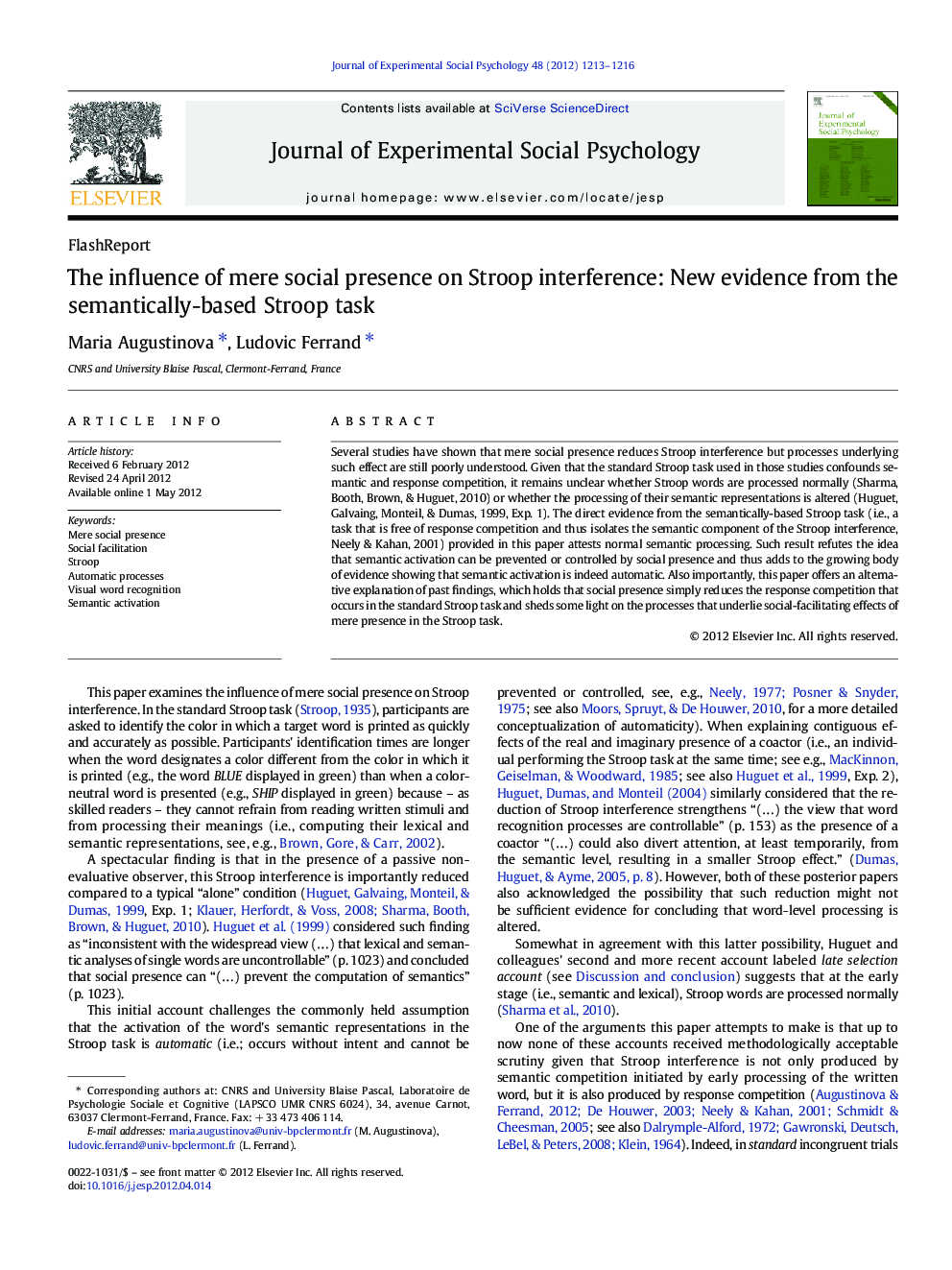| Article ID | Journal | Published Year | Pages | File Type |
|---|---|---|---|---|
| 948065 | Journal of Experimental Social Psychology | 2012 | 4 Pages |
Several studies have shown that mere social presence reduces Stroop interference but processes underlying such effect are still poorly understood. Given that the standard Stroop task used in those studies confounds semantic and response competition, it remains unclear whether Stroop words are processed normally (Sharma, Booth, Brown, & Huguet, 2010) or whether the processing of their semantic representations is altered (Huguet, Galvaing, Monteil, & Dumas, 1999, Exp. 1). The direct evidence from the semantically-based Stroop task (i.e., a task that is free of response competition and thus isolates the semantic component of the Stroop interference, Neely & Kahan, 2001) provided in this paper attests normal semantic processing. Such result refutes the idea that semantic activation can be prevented or controlled by social presence and thus adds to the growing body of evidence showing that semantic activation is indeed automatic. Also importantly, this paper offers an alternative explanation of past findings, which holds that social presence simply reduces the response competition that occurs in the standard Stroop task and sheds some light on the processes that underlie social-facilitating effects of mere presence in the Stroop task.
► We examined the influence of mere social presence on Stroop interference. ► We used both the standard and the semantically-based Stroop task. ► Mere social presence influences response competition but not the computation of semantics. ► Our results corroborate the automatic character of semantic activation in reading. ► We provide a new explanatory account of the influence of mere social presence in the Stroop task.
